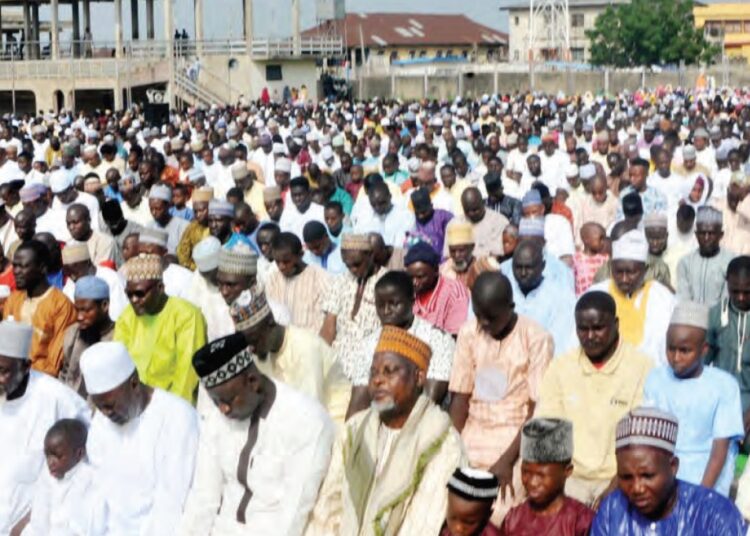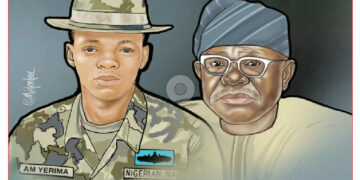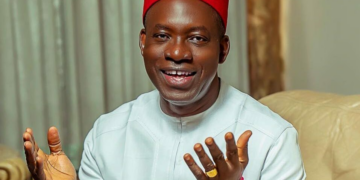All salutations and adorations are due to Allah (SWT), the Most Beneficent, the Most Merciful. May the blessings of Allah (SWT) be upon His noble Prophet, the Prophet of guidance, the beloved of Allah, the last and seal of all prophets, Muhammad, his household, righteous companions and all those that followed them, till the last day.
For over two decades, the Supreme Council for Shari’ah in Nigeria has been an umbrella, a pillar and a consistent partner in championing the progress and development of the Ummah and our nation in general. The council has actively contributed to the political and socio-economic development of Nigeria, with the unity and prosperity of the Ummah as the cornerstone of our efforts. As a religious body, one of our core objectives is to see to the realization of a stable Ummah and country that is economically, socially and politically viable. And in spite of the formidable challenges facing our nation, we remain steadfast in our commitment to contribute to its success through constructive engagement with key stakeholders at all levels.
Fellow brothers and sisters in Islam, we are living in turbulent and unpredictable times characterized by fear, insecurity, excruciating poverty, mutual distrust, corruption, and despondency. Millions of our frustrated youths face an uncertain future and diminishing possibilities. The paramount challenge before us is how best to confront these issues, instill hope, and, with the help of Allah (SWT), turn our situation around to success, security, and prosperity.
In addition to discussions on the prevailing challenges, this year’s Ramadan meeting will primarily focus on a retrospective analysis and the future prospects of Shari’ah implementation in Nigeria, to be followed by a second presentation on the position of the Shari’ah on the leadership of women. It is expected that the congregation will examine and interrogate the various arguments on this emerging issue so that the Ummah will be better informed and guided on the matter.
It will be recalled that in our last two Pre-Ramadhan meetings, held in March 2022 and the 13th of March 2023, in Osogbo and Abuja, respectively, the primary focus then was on ensuring the unity of Muslims and keeping alive the Muslim-Muslim agenda in our democracy, with a majority Muslim population. Alhamdulillah, with the grace and blessing of Allah (SWT), the idea of a Muslim-Muslim ticket in our political life has been emphatically established. But of course, the idea of a Muslim-Muslim agenda, which we believe is the right of the Muslim majority in a democracy, is not, on its own, a solution to the myriad of challenges facing our country. We are indeed facing near-existential challenges, the resolution of which will require more than halfhearted efforts from all of us. Justice, embodied in Islam’s teaching, is the key that opens the doors of prosperity in any society.
Accordingly, while we all rightly expect a lot from our leaders, we should also, as Muslims remember and remind our brethren of the divine dictum–
“Innal laaha laa yughaiyiru maa biqawmin hattaa yughaiyiroo maa bianfusihim; wa izaaa araadal laahu biqawmin sooo’an falaa maradda lah; wa maa lahum min dooniheeminw waal(11)”
“Indeed, Allah will not change the condition of a people until they change what is in themselves. And when Allah intends for a people ill, there is no repelling it. And there is not for them besides Him any patron. (11)” (Suratul Ra’ad Q12 V11)
We must, therefore, engage in critical self-introspection and repentance continuously, individually and at the collective level, and appeal for a helping hand for those in dire need.
On the part of the leaders we elected, it is incumbent upon all of us to seize every opportunity of engagement to remind them of the weight of the burden on their shoulders, to cater for the welfare and well-being of those under them, in line with the well-known principle in Islam, “Sayyidul qaum khaadimuhu” (the leader of a people is their servant). We should not tire from reminding them to be mindful of the day of reckoning, when we shall all unfailingly stand alone before the Almighty to account for our actions and urge them to fear Allah (SWT) and uphold the fundamental tenets of justice.
Recently, in response to a plethora of unsatisfactory comments by a section of the Ulamah regarding the existential challenges of insecurity and unprecedented increase in food prices from a spiraling inflation, the Council organized a Conference themed “Matters Arising from 2023 Elections & Associated Socio-economic Challenges’’ on the 4th and 5th of Rajab 1445AH (16th – 17th January 2024). It aimed to provide a platform for Muslim leaders and organizations to deliberate on these challenges for our national development. The Conference featured paper presentations on sub-themes such as “Repentance to Allah: A Panacea for Social and Economic Development,” “LGBTQAI+,” “Etiquettes of Scholarship in Islam,” and “Islamic Brotherhood and Growing Tendencies of Tribalism.” The outcome eventually culminated in a second meeting with the President, where all the issues raised at the conference were discussed.
Much earlier, on the 9th of August, 2023, President Bola Ahmed Tinubu, GCFR, granted a private audience to a delegation of 20 of our Council members. A range of issues affecting the Ummah and the country, including the Niger Republic coup saga, insecurity, imbalance in appointments, subsidy removal, the challenging socioeconomic situation, and the general state of the economy, were raised and discussed. The delegation offered advice to the President on tackling these issues. He acknowledged the council’s pivotal role and the partnership’s value in resolving our many challenges.
Over the past year, the Council has also actively engaged in high-level interactions and advocacy efforts concerning the social well-being and development of the Ummah and the nation at large. These engagements included meetings with the Secretary to the Government of the Federation, the Deputy Senate President, the Chief of Defense Staff, serving Ministers, Senators, Governors, and other influential leaders.
Respected Brothers and Sisters in Islam, as the holy month of Ramadan Kareem approaches, the Council would like to, as is customary, appeal to the Ulama to meticulously convey and elucidate on the following messages to our Muslim brethren:
1. The imperative need for Muslims to turn to Allah SWT with sincere repentance and unwavering devotion. Amidst the myriad socioeconomic challenges gripping the nation, the place of collective prayers for lasting peace and viable solutions cannot be overemphasized. Muslims across Nigeria should also be urged to seek refuge in their faith through perseverance and fostering a deep connection with Allah SWT through earnest repentance and heartfelt supplication. In the sanctity of prayer, the community can unite to beseech divine intervention to resolve the country’s challenges. This spiritual resurgence should serve as a beacon of hope, guiding individuals towards a path of righteousness, resilience, and the pursuit of peace in our beloved nation.
2. The best part of real guidance is the implementation of a Shariah legal system in Nigeria, which has been a source of significant interest nationally and internationally since its pronouncement in Zamfara state in 1999. The Council has observed with great concern how a succession of state governors in Shariah-implementing states are progressively relegating it to the back seat of their governance, thereby raising questions about its viability. The Council is hereby appealing to the Ulamah to take advantage of the Ramadan period to call for the revitalization of Shariah in majority Muslim states in the country through the establishment of appropriate institutions to consolidate its effectiveness and relevance.
3. We earnestly implore our esteemed Ulamah to exemplify the highest standards of methodology during their Tafseer activities, in view of the pivotal role of religious leaders in guiding the Muslim Ummah, especially during this sacred time of spiritual reflection and enlightenment. We should always remember the Prophetic saying “Al’ulama’u warathatul Anbiya’a” (The Ulamah are the successors of the Prophets). We, therefore, beseech you to employ a compassionate and inclusive approach to ensure that messages resonate with the diverse audience within the community. The Tafseer sessions, which should serve as platforms to promote unity, tolerance, and understanding among followers, emphasizing the core values of Islam, such as compassion, justice and kindness, can contribute significantly to fostering a harmonious society. This way, the Ulamah can inspire positive change and enhance the spiritual experience of Ramadan for all believers in Nigeria.
4. On the current political situation in the Niger Republic, we should express gratitude to the Nigerian government and ECOWAS for heeding our calls on the lifting of sanctions on Niger Republic, Guinea and Mali. Also, the Ulamah should call on the military junta to seek a path toward greater inclusivity and regional cooperation and approach diplomatic relationships with neighboring countries, particularly Nigeria, with a spirit of collaboration and brotherhood. By fostering open dialogue and amending strained relations, the junta can seize upon an opportunity to contribute to regional stability and peace. A more flexible and diplomatic stance can increase trust and cooperation, benefiting both nations.
Sheikh Abdurrasheed Hadiytullah is the president of Supreme Council for Shari’ah in Nigeria.





